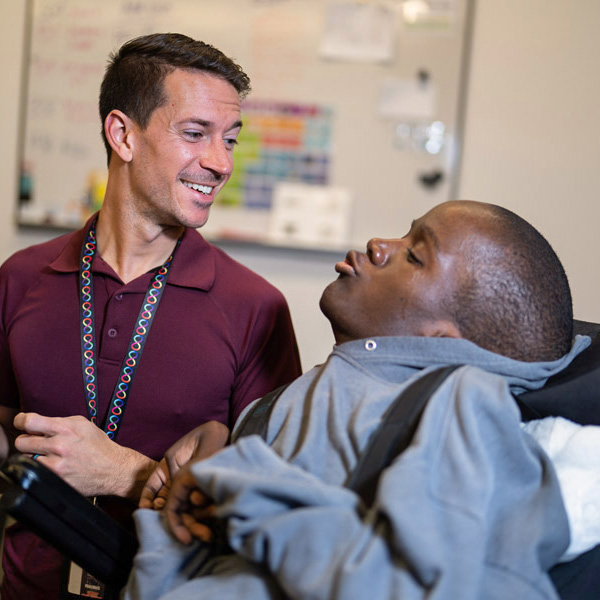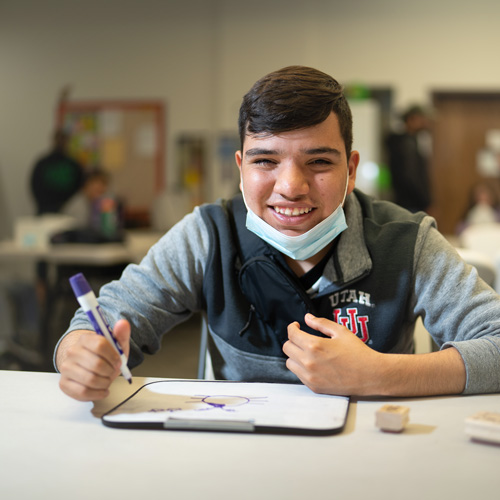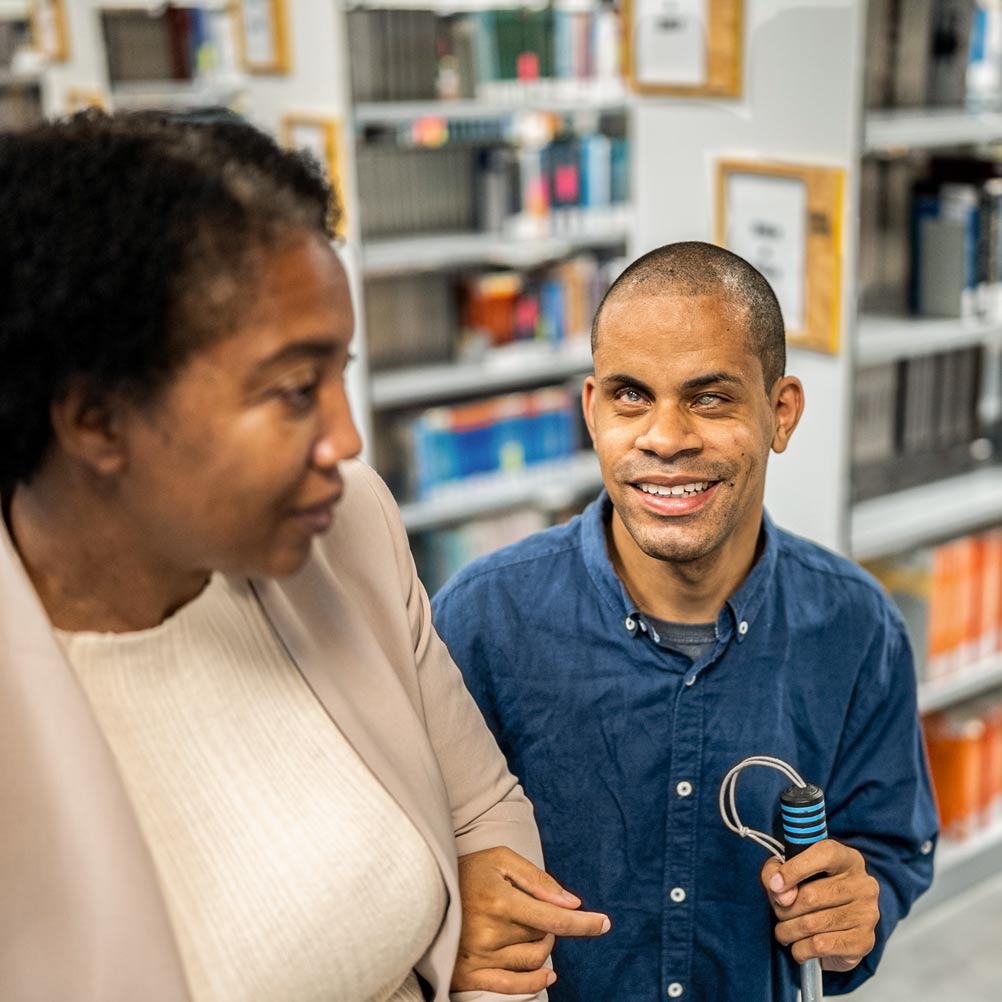License Endorsements At-a-Glance
In preparing for a Utah Professional Educator License in Special Education, students must select one of the following endorsement areas. Endorsement areas are then added to the student’s License in Special Education.
A Special Education Professional Educator License specifies what students are qualified to teach (e.g., Special Education). The endorsement program that students select specifies additional content they qualify for. For example, grade level, a specific class, or a niche-subject area. The endorsement verifies that a student has acquired an additional specialized skill set.
Endorsement Specializations
Students must select one of the following endorsement areas. Endorsement areas are then added to the student’s Utah Professional Educator License in Special Education.

Extensive Support Needs
The Extensive Support Needs program trains teachers to work with K-12 students and adults up to age 22 who have severe disabilities. It focuses on creating personalized instruction plans, managing behavior, and using data to guide interventions. The program combines coursework with hands-on experience in special education classrooms.
View Admissions Information
Specialization Information

Mild/Moderate Support Needs
This program trains graduates to teach students with high-incidence disabilities like learning disabilities, intellectual disabilities, emotional and behavioral disorders, and communication disorders in grades K-12. They will use effective teaching strategies that are backed by research. Graduates may also consider completing the ESL Endorsement if they plan to work with Mildly/Moderately disabled students.
View Admissions Information
Specialization Information

Preschool Special Education & Early Intervention
Graduates learn to work with infants, toddlers, and preschool children who need extra help in their development. They get to partner with families and other experts to create personalized plans for each child. Family-centered early intervention specialists get to work with families in their homes.
View Admissions Information
Specialization Information

Applied Behavior Analysis (ABA)
Graduates will learn to work with children and adults with or without disabilities. They will learn many concepts and strategies for behavior analysis that they can use in a variety of settings.
This is a non-teacher preparation program that leads to a Certificate.
View Admissions Information
Specialization Information

Visual Impairments
The Visual Impairments specialization covers a range of topics such as the Unified English Braille code, Assistive Technology for Students with Visual Impairments, and the Expanded Core Curriculum. Candidates learn how to support their students in developing social skills, succeeding academically, and more.
View Admissions Information
Specialization Information

Deaf & Hard of Hearing
The Deaf and Hard of Hearing specialization coursework covers a wide range of topics, including spoken language through audition, visual communication approaches, and American Sign Language. The program emphasizes language and literacy development, social skills, cognitive development, and academic success.
View Admissions Information
Specialization Information

Deafblind
This program prepares teachers to work with children and youth who have both hearing and vision impairments. The program teaches candidates how to meet the unique and intensive needs of this population. Teachers who complete this program can get an endorsement in Deafblindness in Utah, which means they're experts in this area and can help children with this disability in many ways.
View Admissions Information
Specialization Information
